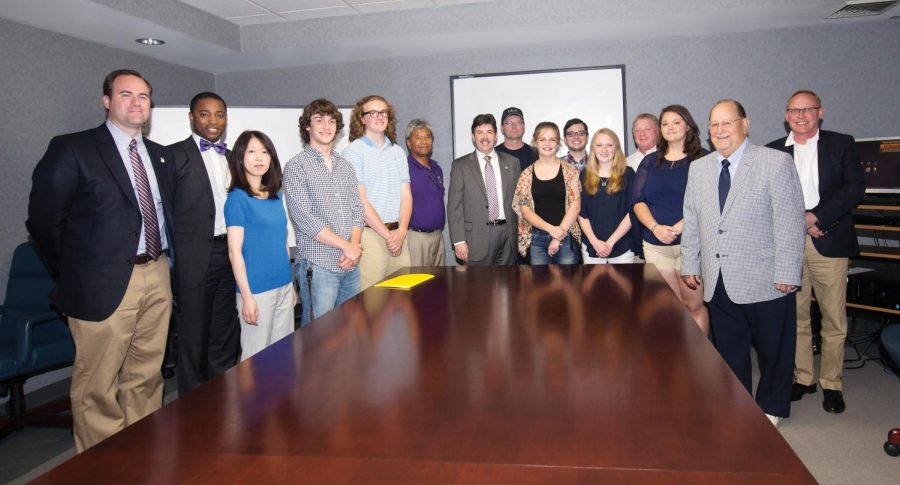UNA to host TARC competition and student rocket-building workshops
October 17, 2015
For the first time, UNA will host a Team America Rocketry Challenge competition on campus.
TARC is the largest student rocket contest circuit in the world, with over 700 middle school and high school teams competing across the country last year, said Alabama Math, Science, and Technology Initiative (AMSTI) K-5 Specialist Lee Brownell.
“In the entire northwest area (of Alabama), we’ll be the first hub to host (a rocketry competition),” said Management Professor Santanu Borah. “This is a big accomplishment for UNA, given the fact that we’re starting the new engineering technology management program.”
The launch competition will be at the Florence Sportsplex on Savannah Highway March 19. Over 22 middle school and high school teams have already registered for the event.
The first workshop is Oct. 17 at East Campus. Brownell said this first workshop will focus on teaching students how to use rocket-modeling software.
“When I was the Russellville rocketry sponsor, there were only about 10 to 15 teams doing TARC in the state,” Brownell said. “Now, we have 22 teams just at the little hub here that we have going.”
He said he thinks hosting the competition at UNA will not only contribute to technology education and teaching team-building skills, but also expose high school juniors and seniors to UNA’s pre-engineering programs.
“They always think about Auburn, Alabama, the University of Alabama at Huntsville and the University of Alabama at Birmingham because those are the engineering schools,” Brownell said. “That’s where they expected they’d get the education they needed. (UNA) is always their second choice or ‘backup’ school.”
By hosting the workshops at UNA, students can catch a glimpse of the university’s pre-engineering and business programs, he said.
Borah said he thinks exposing high school students to rocketry and UNA’s engineering program can help them find jobs in north Alabama.
“Huntsville is one of the main centers for rocket technology,” Borah said. “If this becomes something our students and high school students are interested in, they can take it to the next level and potentially be employed.”
Brownell said he wants to help some of the new rocketry teams in the state “get on their feet.” UNA will pay for any team interested in the competition, he said. Also, the AMSTI group is hosting three free workshops for the teams.
The university also provides all the materials needed to build a TARC-regulation rocket and an altimeter, he said. Participants cannot use rocket kits in competition, he said.
“(The rocket) has to be something that’s available for everybody,” Brownell said. “They have to come up with their own rocket by taking parts and putting them together to form a rocket.”
High school and middle school rocketry teams typically compete by themselves, he said. Each group hosts their own launches and sends their data to TARC for rankings, he said.
Now, teams can gather and launch their rockets collectively.
More importantly, he said the teams can help each other and show other teams how to make their rockets better.
“What we’re doing is looking at it as a workforce development program,” Brownell said. “We’re teaching students how to think and be responsible and how to cooperate with others. Even if you want to be an accountant, you still have to be able to do those things.”


